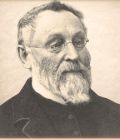COMMON NAMES:
LYCOSA tarentULA: SPANISH SPIDER: A LARGE, HAIRY AND VENOMOUS, TROPICAL SPIDER, of South AmericA).
Symptoms
This spider poison has, like other spider poisons, very positive nervous symptoms (N.).
It acts upon the uterus and ovaries and upon the female sexual organs generally (N.).
Especially indicated in choreic affections, where the whole body or the right arm and left leg are principally affected (left arm and right leg principally affected-Agaricus) (Bt.).
Lasciviousness; moral relaxation (Phosphorus) (Br.).
EXTREME RESTLESSNESS; THE PATIENT MUST BE IN CONSTANT MOTION, THOUGH MOTION AGGRAVATES (Phytolacca) (D.).
Sensitive to music (Natrum carbonicum, Nux vomica, Sep) (Br.).
Must be doing something all the time (Kali-Br.) (D.).
Destructive impulses (Arsenicum, Stramonium) (Br.).
Hysterical affections (Apis, Ignatia, Sepia) (D.).
Sudden alteration of mood (Belladonna, Ignatia, Pulsatilla) (Br.).
Twitching and jerking of the muscles (Belladonna, Hyoscyamus, Ignatia, Lachesis,) (A.).
Constant movement of the legs, arms, trunk, with inability to do anything (A.).
Seminal emissions (Phosphorus, Sepia) (Br.).
Neuralgia of the uterus, accompanied with sadness and despair (Bt.).
Spasms of the uterus (Belladonna, Secale) (A.).
Kleptomania (Br.).
Wants hair brushed or head rubbed (Br.).
SYMPTOMS APPEAR PERIODICALLY (Arsenicum, Cedr., China, Kali bichromicum, Lachesis, LYc., Natrum muriaticum, Spigelia). (A.).
Neuralgic headache, aggravated by the least noise, touch, strong light (Belladonna, Coffea, Nux vomica) and ameliorated by rubbing the head against the pillow (A.).
Restless legs, impulse to walk (Br.).
At every menstrual nisus, the throat, mouth and tongue become intolerably dry, especially when sleeping (Nux-M.) (A.).
Cough at night, ameliorated by smoking (K.).
Termini of nerves become so irritated and sensitive that some kind of friction is necessary to obtain relief (A.).
Menstrual irregularities (Ignatia, Pulsatilla, Sepia) (C.).
Dysmenorrhoea (Bryonia, Caulophyllum, Vin-O.). (C.).
Food tastes sour (Am-C., Calcarea, Lycopodium, Pulsatilla) (K.).
Craves raw food (Ail., Silicea, Sulphur) (B.).
Extreme sexual excitement (Platina, Stramonium). (A.).
Nymphomania and pruritus vulvae; the parts are dry and hot, with much itching and frequent erotic paroxysms (D.).
Sensitiveness of the ovaries (Apis., Belladonna, Lachesis, Platina, Murx.) (D.).
Hyperaesthesia. least excitement irritates, followed by languid sadness (A.).
Extreme hyper-sensitiveness of the tips of the fingers (A.).
Slight touch along the spine provokes spasmodic pain in the chest and cardiac region (A.).
Alternate chill and heat (Arsenicum) (B.).
Intense headache (Belladonna, Gloninum, Lachesis, Natrum muriaticum), as if thousands of needles were pricking in the brain (as though a thousand little hammers were knocking in the brain- Natrum muriaticum) (A.).
Intermittent fever, with choreic convulsions (C.).
AGGRAVATION:
From motion; from touch of the affected parts; from noise; from change of weather; periodically the same hour; in the evening; and after menses.
AMELIORATION:
In the open air; from music; from bright colours; from massaging the affected parts; from riding on horseback; and from smoking.
RELATIONSHIP:
Similar to: Agaricus, Apis., Arsenicum, Belladonna, Cantharis, Croc., Crotalus horridus, Cuprum, Ferrum, Kali-Br., Kali-P., Lachesis, Magnesia phos., Mercurius, Mygale, Naja, Natrum muriaticum, Phosphorus, Platina, Rhus toxicodendron, Secale, Stramonium, Sulphur, Verat and Zincum met.
Complementary: Arsenicum
Antidote: Lachesis

